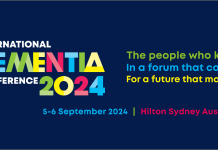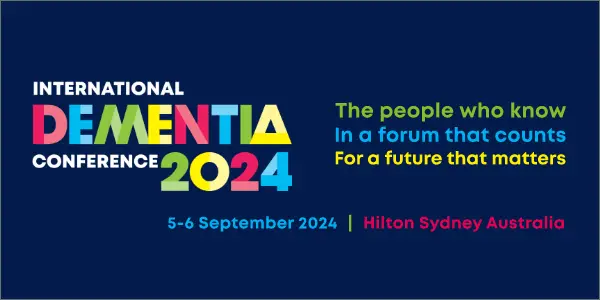Whiteley cleaning products helped Australians during wartime and the Covid-19 pandemic. Why they believe the importance of infection prevention is only going to increase.
Infection prevention and control will continue to be critical in aged care even once the threat of Covid-19 is contained, says one of Australia’s leading infection prevention experts, amid a growing threat of “superbugs” and viruses.
Whiteley Executive Chairman Dr Greg Whiteley said hygiene and disinfection were essential for the health and quality of life for aged care residents who could be extra vulnerable to infection.
The expert in disinfection and decontamination – who helped craft Australia’s first national disinfectant framework and leads Whiteley, Australia’s largest manufacturer of hospital-grade cleaning products said a major impact of the pandemic had been a heightened awareness of hygiene and its importance.
“This focus should remain,” he said. “Generally, hygiene standards have been improved by COVID-19, and that’s a good thing. People are paying more attention to hand hygiene and surface hygiene.”
But he said the risk of other microorganisms in aged care settings remained important, and would grow, as the number of multidrug resistant superbugs increased around the world.
“We still worry about infections in aged care,” Dr Whiteley said. “Many patients still succumb to multidrug resistant organisms such as Golden Staph. For those patients, infection prevention is absolutely critical.”
Infection prevention has emerged in awareness as a life-saving defence against COVID-19 and other viruses and bacteria.
Australia’s Aged Care Quality and Safety Commission report into the outbreaks of COVID-19 in Victorian aged care homes last year found “all providers” identified the critical importance of effective infection prevention and control.
But it also found many facilities were unprepared for the “intensity and complexity” of the control measures across all areas of the service.
A proven track record for virus-killing cleaners
A week after Australia entered its first national lockdown to halt the pandemic’s spread in March last year, Whiteley’s Viraclean® surface disinfectant product had become certified for killing the Covid-19 virus, SARS-CoV-2.
Last March Viraclean, a product Whiteley has made since 1986, was the first in Australia to legally make the claim approved by the health regulator, the Therapeutic Goods Association (TGA).
Dr Whiteley said their company and its TGA and Standards Australia-approved manufacturing plants had a long and proven history of providing effective, easy-to-use products for cleaning and hygiene.
“It’s peace of mind that it works,” he said. “The fact it has been used within healthcare across Australia and has been used successfully for so long after all these years shows the product is reliable. Choosing something made in Australia with TGA registration means if you need to use a hospital-grade disinfectant Viraclean is a product that works and is reliable.”
Whiteley has been helping aged care providers as a manufacturer of hospital-grade disinfectants and hygiene products for almost 90 years.

During the great depression the organisation, then operating as The Australian General Disinfectant Company, expanded its existing range of deodorants, disinfectants, insecticides, pest control chemicals and cleaning products to include antiseptics and personal hygiene products to assist the national war effort.
Since then, the company has grown into a major Australian supplier of cleaning and disinfection products to industries as diverse as hospitals, aged care, childcare, dental and water treatment.
It exports its suite of infection prevention products to more than 20 countries around the world.
A leading focus on research
And there is more to come.
The company is two years into an agreement with the University of Sydney and the Innovative Manufacturing Cooperative Research Centre (IMCRC) to invest in the research and development of new treatments for infections that are spread through biofilms.
These surfaces can host bacterial and other microorganisms and influence their ability to spread and grow antibiotic resistance.
Dr Whiteley said biofilm impacts were important in aged care as bugs could linger on surfaces – such as skin, medical devices and even chairs – and spread rapidly particularly via unwashed hands.
“Where you’re using and re-using medical devices, bugs that are on the surface of your skin can easily jump off,” he said.
“Where there is biofilm, on a medical device and you touch that biofilm, those bugs will stay on your hands for up to 19 subsequent touches.
“Biofilms can also make [the bacteria] more resistant [to antibiotics]. We’ve shown that in the biofilm bacteria can resist up to 20,000 ppm of chlorine, so it’s 20,000 times more resistant than normally expected.”
He said the impact of potential new approaches to help some of these conditions would help people.
“Obviously if you can treat some of these illnesses it can have a tremendous quality of life benefits for individuals,” he said.
“If you have a chronic urinary tract infection, it can lead to significant morbidity if the infection can’t be resolved. Dealing with these issues is quite complex and it has huge quality of life benefits for those who are suffering.”
Sponsored by Whiteley Corporation










